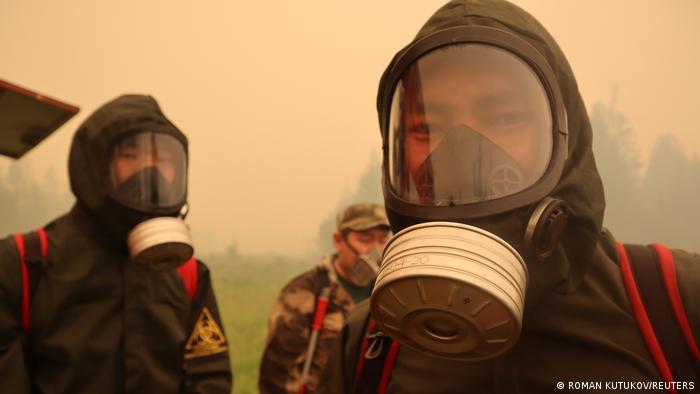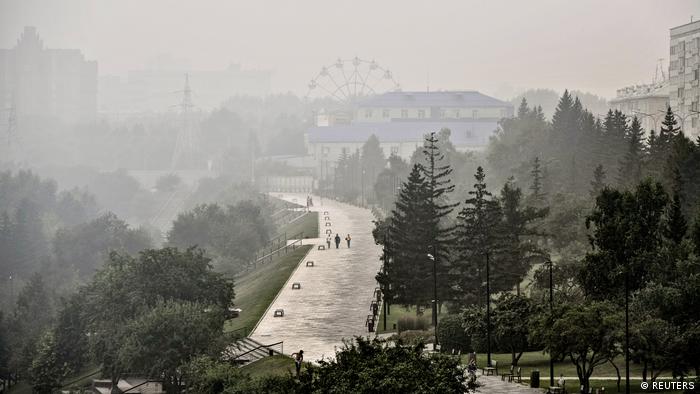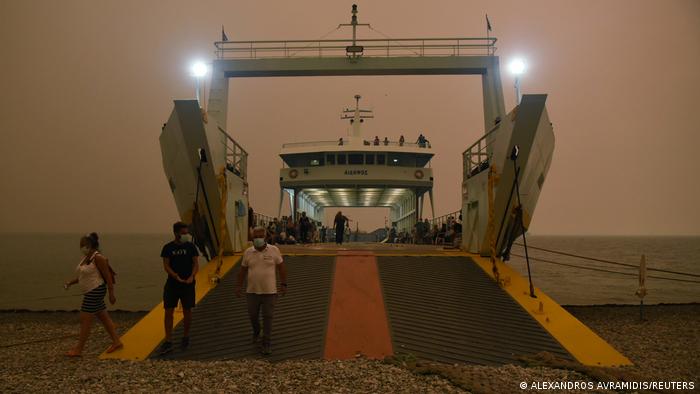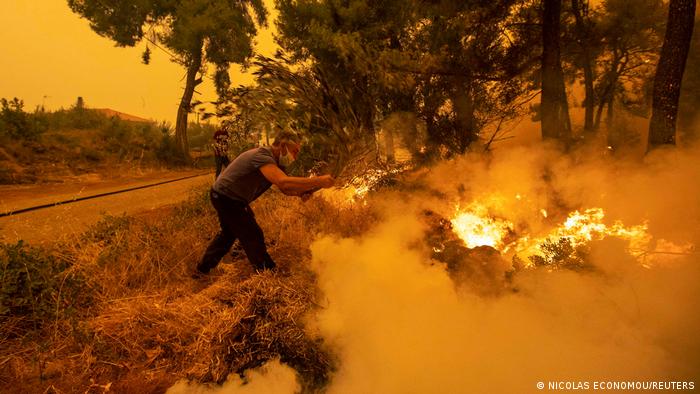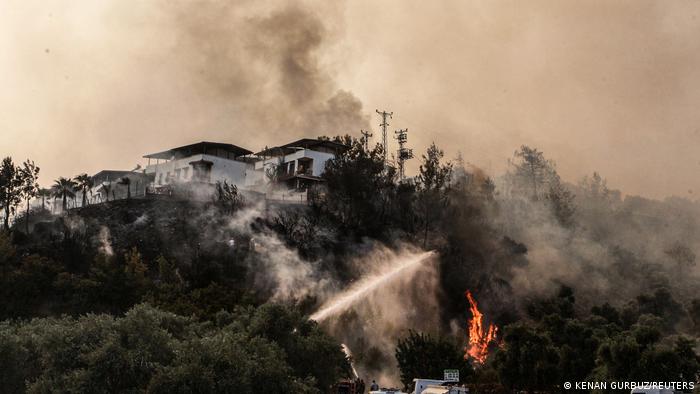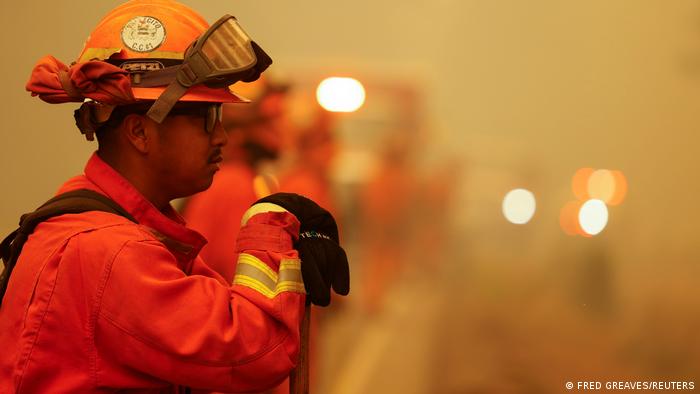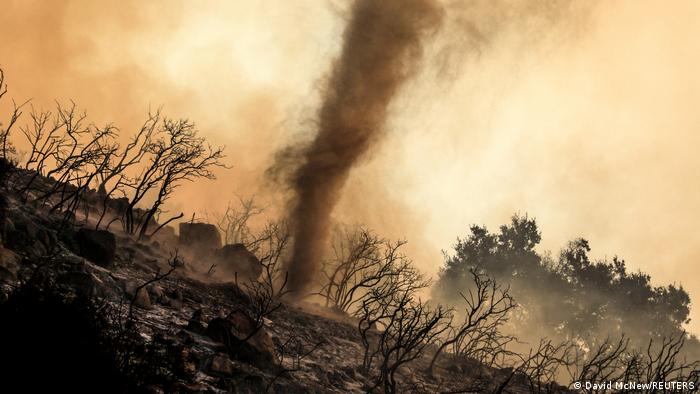Fires have broken out across Russia’s vast forests and steppes in recent weeks, with blazes flaring up in several regions across southwestern Siberia. Several villages have already been destroyed by the flames, and local authorities have reported at least 10 dead in recent days.
The Siberian Times, an English-language newspaper that covers the area, has been posting videos showing dramatic scenes of the fires on Twitter since mid-April. DW has not independently verified the videos.
On Tuesday, Russian President Vladimir Putin told regional officials to get the forest fires under control, saying they were posing a threat to life, the environment and the economy.
“We cannot allow a repeat of last year’s situation, when forest fires were the most long-lasting and intensive of recent years,” he said, in comments broadcast on state TV. In 2021, a record-breaking 18.8 million hectares (72,600 square miles) of forest, steppe and peatland were burned, according to Greenpeace Russia an area roughly the size of Syria.
Burning of boreal forest peatland is a “climate bomb,” said the environmental group. Carbon-rich peat contains organic matter that has collected for thousands of years, so emissions from each square meter of peat fire are “many times higher than from the most powerful forest fires.”
Around half of the world’s carbon that is stored in peatland lies along the Arctic Circle, including Siberia that’s billions of tons. Peat fires are particularly hard to extinguish.
War, sanctions may hamper response
Russia’s Federal Forestry Agency told a news conference in late April that it was on high alert, ready to deploy helicopters, drones and other equipment. In previous years, Russian troops have also been sent in to help extinguish the flames.
But with a significant number of Russian soldiers and resources tied up fighting in Ukraine, some analysts have pointed out that this year’s firefighting response might not be up to the task.
“It’s inevitable that the allocation of resources to war is going to detract from the firefighting effort,” said Thomas Smith, associate professor in environmental geography at the London School of Economics, in an email. He has been monitoring the recent fires using satellite imagery.
Max Bergmann, the director of the Europe Program at the Center for Strategic and International Studies in Washington, told DW that Russia probably still had the necessary reserve manpower to fight forest fires. But he pointed out that the ongoing war and international sanctions are likely putting a strain on other resources, including the budget and logistics.
“One of the challenges that Russia may face, with export controls and sanctions, is maintaining some of the helicopters and other advanced military equipment” with parts generally sourced from abroad, he said.
With the few parts that do make it into the country, he said, the challenge will be whether to “prioritize maintaining and repairing the firefighting fleet or the fleet used against Ukraine, [] one of the guns versus butter questions that Putin is going to have to juggle going forward.”
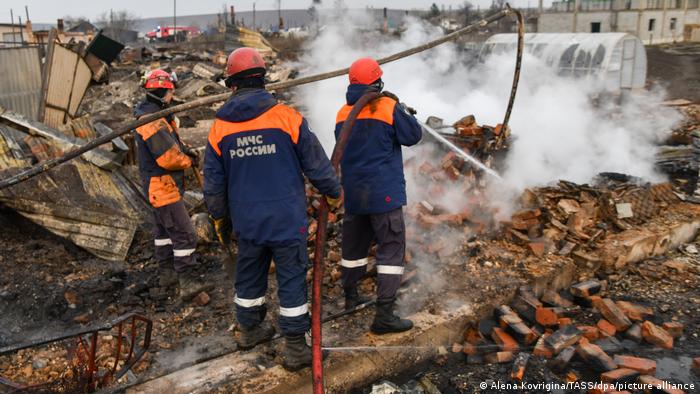 PIN IT
PIN ITEntire communities have been destroyed by the recent fires, including in the town of Uyar, in the Krasnoyarsk region
Wildfires are more frequent, more destructive
According to Russia’s Emergencies Ministry, around 4,000 forest fires covering some 270,000 hectares (around 1,040 square miles) have been reported on Russian territory since early this year. Most have been concentrated in a handful of regions, including Krasnoyarsk, Kemerovo, Kurgan, Omsk and Tyumen.
Wildfires, sparked by lightning or spontaneous combustion, are a part of the natural cycle in Siberia’s relatively fireproof ecosystem saturated with lakes, rivers and swamps. But climate change is making things warmer and drier, increasing the fire risk. Siberia, known for its long, icy Arctic winters, is warming faster than anywhere else on the planet around twice as fast as the global average. And as the ice caps recede and the darker open water absorbs more of the sun’s rays, it only makes things worse.
“It’s too soon to tell whether these early fires [in the south] are an indicator of what may happen further north later in the season,” said Smith of the London School of Economics, adding that weather systems and other conditions will all play a factor. “It’s important to note though, that climate change in the Arctic is now making extreme fire seasons more likely, so in the event of the right weather, the fire seasons are likely to be increasingly destructive on average.”
Smith said the fires across Siberia would likely pose a challenge even if Russian troops weren’t busy elsewhere. “It has been clear in recent years that the scale of the fires in Siberia has been beyond the capacity of Russia’s firefighting resources, even in peacetime,” he said, adding that many remote fires are simply left to burn. He added, however, that there was the possibility this year of “greater socioeconomic losses as a result of the reduced civil protection.”
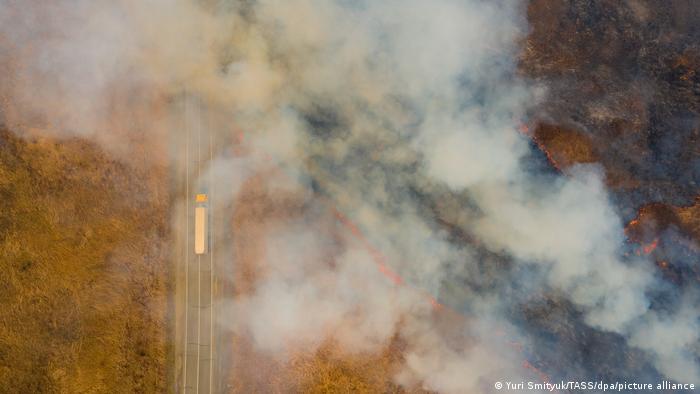 PIN IT
PIN ITPeat fires can smolder for months, releasing 10 to 100 times more carbon than a burning tree
And while Russia is unlikely to divert its attention from Ukraine to firefighting any time soon, Bergmann said it’s possible that another devastating fire season could force the Kremlin to reconsider its priorities.
“Putin is juggling two competing objectives,” said Bergmann. “One is his geopolitical goals in Ukraine, and one is domestic stability. If fighting fires is critical to the survival of his regime, that will be something he prioritizes.”
Greenpeace Russia is calling for longer term solutions to stop forest fires from raging to this extent in the first place, such as implementing sustainable forestry practices and increasing funding for fire protection.
Edited by: Jennifer Collins

